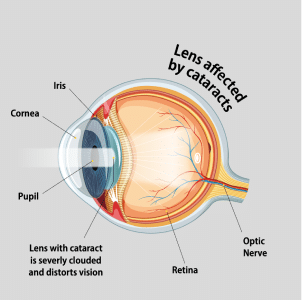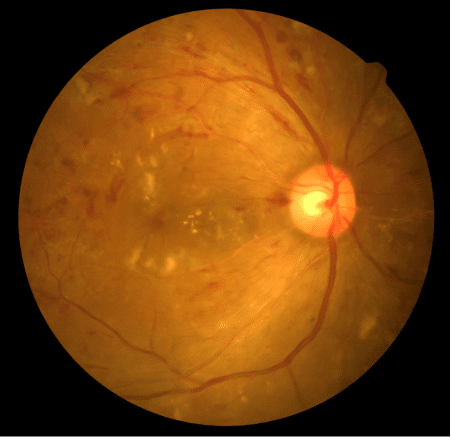
Cataracts: People with diabetes are more likely to develop cataracts at a younger age than those without diabetes. High blood sugar levels can cause changes in the protein structures of the lens, leading to the formation of cataracts.
The Importance of Regular Eye Exams for Diabetics
Diabetes is a chronic condition that affects millions of people worldwide. It is a leading cause of various health problems, including eye-related complications. The doctors at Cohen eye institute manage diabetic eye disease every day and are very comfortable in both detecting and treating its complications. In this article, we will explore the ways in which diabetes affects the eye and why it is important for diabetics to have regular eye exams.
Diabetes can cause a variety of eye-related complications, including dry eye, cataracts, and diabetic retinopathy.

Cataracts: People with diabetes are more likely to develop cataracts at a younger age than those without diabetes. High blood sugar levels can cause changes in the protein structures of the lens, leading to the formation of cataracts.
Dry Eye: People with diabetes are more susceptible to dry eye due to decreased tear production, which is often caused by high blood sugar levels. Dry eye can cause discomfort, irritation, and even vision problems.


Diabetic Retinopathy: Diabetic retinopathy is a serious eye condition that can lead to vision loss and blindness. It is caused by damage to the blood vessels in the retina, which is the part of the eye responsible for capturing light and transmitting visual information to the brain. People with uncontrolled diabetes are at a higher risk of developing diabetic retinopathy because high blood sugar levels can cause changes in the blood vessels in the retina.

Early Detection: Regular eye exams can detect eye-related complications early, when they are most treatable. This is important because diabetic retinopathy can progress to vision loss and blindness if left untreated.
Monitoring: Regular eye exams allow for monitoring of any changes in the eye, which can help to detect and manage eye-related complications early.
Good Blood Sugar Control: Eye exams can help to detect poor blood sugar control, which can lead to eye-related complications. Good blood sugar control is essential to prevent and manage eye-related complications in diabetics.
Proper Treatment: Regular eye exams can provide the necessary treatment to manage eye-related complications, such as dry eye, cataracts, and diabetic retinopathy.
Diabetics should have a comprehensive eye exam at least once a year, or more often if recommended by their eye doctor. Diabetes can cause various eye-related complications, including dry eye, cataracts, and diabetic retinopathy. Regular eye exams are important for detecting and managing these conditions and protecting vision. People with diabetes should have a comprehensive eye exam at least once a year. Book your exam with us today so that we can help you take better care of your vision.

2024 Cohen Eye Institute. All rights reserved.